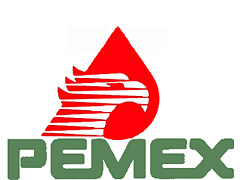
|  |  |  News Around the Republic of Mexico | October 2009 News Around the Republic of Mexico | October 2009  
Mexico’s Congress to Get 2010 Budget Bill After Senate Approval
 Jens Erik Gould & Adriana Lopez Caraveo - Bloomberg Jens Erik Gould & Adriana Lopez Caraveo - Bloomberg
go to original
October 31, 2009


| | Output at Pemex fell last year at the fastest rate since 1942, costing Mexico 300 billion pesos in lost revenue, according to Finance Minister Agustin Carstens. |  |
Mexico’s lower house of congress is scheduled to debate legislation today aimed at shoring up the country’s credit rating after the Senate passed the 2010 budget legislation and new fiscal rules.

Senators voted late yesterday for an increase in sales tax to 16 percent from 15 percent as well as higher income taxes, going along with measures passed last week by the lower house. The Senate changed a proposal for a 3 percent levy on telecommunications by excluding Internet services.

Mexican President Felipe Calderon has pledged to strengthen public finances as oil production declines. The Senate’s passage of the sales-tax increase and its decision to keep other portions of the legislation approved by the lower house may be enough for Mexico to avoid a credit rating cut, said Paulo Leme, chief Latin America economist at Goldman Sachs Group Inc.

“The effort warrants not changing the rating and keeping it on negative outlook,” Leme said in a telephone interview.

The legislation still needs final approval by the lower house, which by law must pass the income portion of budget today. The spending portion must be approved by Nov. 15.

Mexico, which in 2000 became the second country in Latin America after Chile to earn an investment-grade rating, has a negative outlook from both Standard & Poor’s and Fitch Ratings, who rate the nation’s debt BBB+.

The rating companies say they may downgrade Mexico should the government fail to contain the deficit. Moody’s Investors Service rates Mexican debt Baa1, also three levels above junk.

Budget Deficit

The budget legislation calls for a wider deficit next year of 0.75 percent of gross domestic product, compared with 0.5 percent originally proposed by Calderon. It also increases estimated revenue by raising the forecast for next year’s average oil price to $59 a barrel from $53.90 a barrel in the original bill.

The measure to raise the income tax for high-earning individuals as well as corporations would raise the rate to as high as 30 percent in 2010 to 2012, before dropping to 29 percent in 2013 and returning to 28 percent in 2014.

The Senate approved Calderon’s proposal to tax all cash deposits of at least 15,000 pesos ($1,135) at a rate of 3 percent. The tax is now 2 percent and only applies to deposits exceeding 25,000 pesos.

Senators also approved a measure that would force companies to pay taxes deferred under a program known as “fiscal consolidation,” which allows holding firms to postpone paying taxes if their subsidiaries post losses. Under the Senate bill, companies would owe 20 percent of deferred taxes in 2010. Calderon’s bill had proposed they pay 60 percent next year.

Bonds Slump

Mexico’s dollar bonds lost 2 percent this month, their biggest monthly declines since January, on speculation the government will fail to cut the budget gap enough to avoid a downgrade. The decline compares with a drop of 0.5 percent for JPMorgan Chase & Co.’s benchmark emerging-market index.

Credit-default swaps, contracts investors use to protect against non-payment, show Mexico trading as high-yield, or junk - placing it three levels below the nation’s BBB+ grade from S&P and Fitch.

Government revenue tumbled this year as the recession reduced exports and tax collection, while output of oil, which funds about 38 percent of the budget, slumped. Production at state-owned Petroleos Mexicanos declined 4.5 percent in September from a year earlier to 2.599 million barrels a day.

Output at the company, known as Pemex, fell last year at the fastest rate since 1942, costing Mexico 300 billion pesos in lost revenue, according to Finance Minister Agustin Carstens.

The government’s total non-oil revenue, including sales and income tax, fell 13 percent in the first nine months of the year compared with the same period last year, according to the Finance Ministry.

Mexico’s $1.09 trillion economy shrank 10.3 percent in the second quarter and will contract as much as 7.5 percent this year, the most since the 1930s, according to the central bank.

To contact the reporter on this story: Jens Erik Gould in Mexico City at jgould9@bloomberg.net; Adriana Lopez Caraveo in Mexico City at adrianalopez(at)bloomberg.net
|

 |
|  |



